The world is changing faster than we can imagine and the pace of change will only accelerate in the future. We must adapt to change and find ways to overcome difficulties because change also brings many opportunities for those who are ready to seize them.
It has always been my honor and pride to tell the world the story of Vietnam. One of the most exciting parts of this story is the amazing growth journey that Vietnam has had over the past decades, as reflected in the position that Vietnam has achieved in global supply chains.
From a low starting point, Vietnam has risen to become a lower middle-income country with a rapidly growing economy . The impressive numbers speak for themselves. Vietnam is currently involved in 16 free trade agreements and has established comprehensive strategic partnerships with 8 countries. Many organizations forecast that Vietnam’s economy will reach the milestone of 760 billion USD by 2030.
This year, HSBC Global Research expects Vietnam’s GDP to grow by 7%, making it the fastest growing economy in ASEAN and generating as much new GDP as the Netherlands. Furthermore, Vietnam is now among the world’s top 40 largest economies in terms of GDP and top 20 in terms of trade. These advances have pushed per capita income up 43 times from $100 at the time of reform to $4,300 today.
Vietnam has come a long way to get to where it is today. A key factor in that success has been its willingness to embrace change. For many years, FDI has been one of the key drivers behind this remarkable growth, accounting for 4-6% of GDP annually. However, the story of Vietnam’s growth is not simply about “attracting FDI and exporting”. Recently, new drivers have emerged that are helping to push the Vietnam story to new heights.
Change is inevitable
The world is changing more than ever because of two key factors.
Firstly, the technological advancements that have taken place in the past decade alone have completely changed our lives. 10 years ago, owning a smartphone was a luxury for many people. Now, this device has become an integral part of the lives of nearly 70 million people in Vietnam. We can do almost everything with just a few taps on the screen… The rise of artificial intelligence, machine learning and robotics has also completely changed the face of many industries, from healthcare to manufacturing and even banking.
 |
| Mr. Tim Evans, General Director of HSBC Vietnam |
Another key factor affecting our world is climate change. We might think of it as a slow process, following a relatively predictable, even manageable path. That is a mistake. In fact, the effects of global warming are still being felt, leading to a series of natural disasters that will eventually take us to the point of no return.
You’ve probably heard about the devastating storms that have hit the US recently. Climate change has made these storms more ferocious, with winds up to 11% stronger and rainfall about 10%. Looking back at Vietnam, we’ve just seen the devastating effects of Typhoon Yagi. This is proof that climate change is not just around the corner – an existential threat to the world with far-reaching consequences.
The climate is changing and so are we. We all understand that we need to accelerate the transition to a net-zero global economy to keep global warming to 1.5°C. To date, around 150 countries have announced net-zero targets. In 2021, at the COP26 summit, Vietnam set a target of net-zero by 2050 for the first time.
Opportunities open up
Vietnam has great potential for digital consumption. Favorable demographic factors include a population of 100 million with a working-age population of nearly 70%. Rapidly increasing internet penetration also helps expand the digital economy market. Nearly 80% of Vietnam’s population uses the internet, thanks to smartphone ownership that has more than doubled compared to a decade ago.
Government initiatives to promote digitalization in rural areas have spurred progress in building a digital economy that is set to be the fastest growing in ASEAN with an impressive growth rate of 20%, according to the e-Conomy SEA 2023 report. In terms of total transaction value, Vietnam has the potential to become the second largest digital technology market in the region by 2030, behind only Indonesia.
One of the biggest effects of the digital revolution is how it has opened up the world stage for all countries, allowing countries like Vietnam to compete with more developed economies. Vietnam-born unicorns like Sky Mavis, MoMo and VNLife are world-class competitors, but to continue their success stories, we need to continue investing in education and access to build a thriving digital ecosystem that can foster innovation.
Besides, climate change, although a serious challenge that Vietnam is facing, is also a great opportunity for Vietnam as well as its business sector. Vietnam's renewable energy potential is huge thanks to favorable conditions as well as the Government's commitment to balance emissions by 2050.
This is the country with the most suitable natural conditions in Southeast Asia for developing wind and solar power. Vietnam’s natural resources provide the opportunity to attract more investment in the growing renewable energy industry. The green transition offers great opportunities for organizations that are willing to innovate, adapt and lead the way in creating solutions that will bring a more sustainable future for generations to come.
Stay ahead of the trend
We can see many multi-dimensional efforts of the Government to catch up with the above two trends. For example, Vietnam has had the National Strategy for Digital Economy and Digital Society Development to 2025, with a vision to 2030, and the National Strategy on Green Growth for the period 2021 - 2030, with a vision to 2050.
Responding to these efforts, businesses are changing their organizations and deploying technology applications on a large scale. By 2023, about 47% of Vietnamese businesses will have begun to implement digital transformation steps at different levels, according to the Department of Enterprise Development (Ministry of Planning and Investment). Businesses have also begun to research green transformation plans.
Sustainability used to be the “playground” of FDI enterprises because they tended to follow the policies and strategies of their parent companies in other countries where ESG trends were more developed than in Vietnam. However, awareness among domestic enterprises has increased. According to a survey by PwC, 40% of enterprises have plans and set ESG commitments. 48.7% of enterprises said that they believe that reducing emissions and green transformation are necessary, according to a survey conducted by the Private Economic Development Board.
Clearly, change is not an option but a necessity for businesses. And change also brings benefits. Digital transformation has become an integral part of business strategy in the face of increasing competition and changing customer needs. Digital transformation helps businesses break through to bring better products and services, largely thanks to advanced technology.
On the other hand, businesses that fail to address climate change risk undermining the trust of stakeholders such as workers, investors and regulators, and leaving their businesses unprotected against future climate risks.
How expensive is the change?
One question is how much will the green transition cost? Total global government, business and individual spending on energy and land use systems will need to increase by $3.5 trillion per year to have a chance of achieving net-zero emissions by 2050, which is a 60% increase from current levels of investment. That is equivalent to half of global corporate profits, a quarter of the world’s tax revenues and 7% of household spending (source: mckinsey.com: the-net-zero-transition-what-it-would-cost-and-what-it-could-bring-final.pdf). For Vietnam, according to the Department of Climate Change (Ministry of Natural Resources and Environment), it will need about $400 billion by 2040 (nearly 6.8% of annual GDP) to respond to climate change.
What about digital transformation? Global spending on digital transformation is forecast to reach nearly $4 trillion by 2027, according to the International Data Corporation. In Vietnam, it is estimated that the minimum investment for digital transformation should be at 1% of the annual state budget.
Both digital and green transformation trends require huge investment, in which finance plays an essential role. The capital from the state budget expected to respond to climate change in Vietnam only meets about 130 billion USD, less than half of the necessary investment capital. Investment costs are also the top challenge in digital transformation. Therefore, global banks like HSBC have a role in facilitating capital flows, connecting investors, providing customers with relevant expertise and guiding capital in the right direction.
Change may seem costly, but delaying change is even more costly. Are we ready to embrace change and thrive in today’s rapidly changing world? The choice is ours.Source: https://thoibaonganhang.vn/thay-doi-la-xu-huong-tat-yeu-cho-tang-truong-tuong-lai-157030.html






![[Photo] Binh Trieu 1 Bridge has been completed, raised by 1.1m, and will open to traffic at the end of November.](https://vphoto.vietnam.vn/thumb/1200x675/vietnam/resource/IMAGE/2025/10/2/a6549e2a3b5848a1ba76a1ded6141fae)

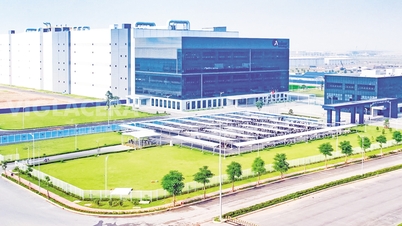









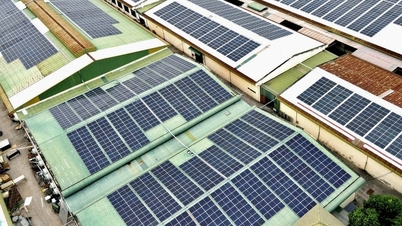





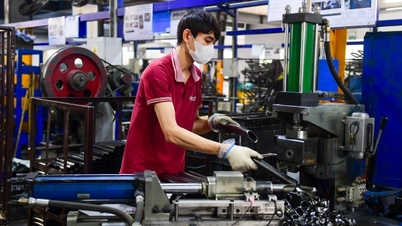



















































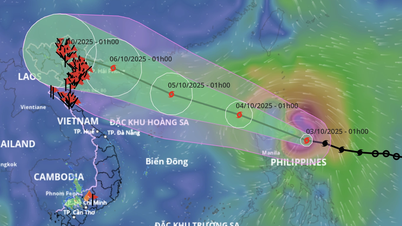






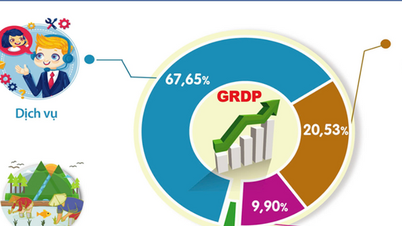





















Comment (0)